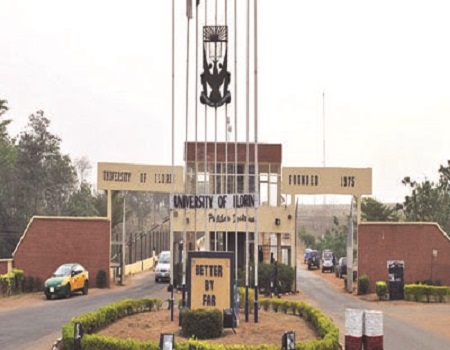A Professor of Public Health at the University of Ilorin, Gordon Kayode Osagbemi, has called on governments at all levels in the country to enact laws, rules and regulations that govern human activities in the environment, saying that this could reduce the society’s vulnerability to disasters.
Prof. Osagbemi, who made the call while delivering the 182nd Inaugural Lecture of the University, identified the main disaster types in the country as floods, droughts, oil spills, bush fires, massive Road Traffic Accidents (RTAs), plane crashes, boat mishaps, ethno-religious clashes, explosions and wars.
In the lecture, entitled “Disasters and Public Health Emergencies-Proper Prior Preparations Prevent Poor Performance”, the don cautioned that the laws, when made, may not have effects unless they are enforced and some form of penalty put in place as a deterrent to defaulters.
ALSO READ: Welfare, security of NYSC members my priorities ― Kwara Coordinator
He noted that people tend to abide by laws when it is known that penalties, including deprivation of certain privileges, are there to deal with those who breach them.
Prof. Osagbemi, who is a Consultant Public Health Physician to the University of Ilorin Teaching Hospital (UITH), said that laws relating to building codes, standardisation of products, public health, registration of foods, drugs, beverages, travel guidelines, vehicle maintenance and weapons are enacted to reduce the vulnerability to disasters”, adding that there is usually the need for outside intervention measures, because the impacts of the disaster overwhelm the ability of the affected persons to cope.
The Inaugural Lecturer said that “when countries, regions, localities, communities, families or individuals are affected by disasters, they require international, national and other stakeholders from elsewhere to assist in order to stop the progression, reduce the impacts or prevent the recurrence of the disaster.
Prof. Osagbemi, who said that disasters are always natural but can also be man-made as a result of civil and military conflicts, political and religious unrest, perceived social injustice and inter-country ideological differences, added that it can be changed through international cooperation including the promotion of global peace.
He pointed out that disaster is a serious decimal that when it occurs in an area, it disrupts the general social and environmental settings in such ways and extents that are characteristically different from the daily living patterns of the people with devastating effects on individuals, families and the society at large.
Prof. Osagbemi identified old people, women and adolescent girls, those with low socio-economic backgrounds, people living in hard to reach disaster zones, humanitarian and aid personnel, urban slum dwellers, people who are ignorant and lack information, ecological manipulation zone dwellers; and people living in borderlands communities as the most vulnerable groups to the effects of disasters.
He suggested that as a way of mitigating disasters, there must be social mobilisation to create awareness and sensitise the various communities on disasters and their effects.
The don said that Nigeria is a disaster-prone country due to some factors such as high population, topography ranging from lowland along the coasts of rivers Niger and Benue valleys to high plateaus in the middle belt and near deserts of north and mountains on the eastern borders, a relatively weak economy, under protected and expansive landmass, as well as unmanned land borders apart from the creeks and inland waterways.
Prof. Osagbemi urged the Federal Government to focus on the establishment of the Emergency Preparedness and Response (EPR) Committee to ensure that the vulnerability to and impact of disasters are reduced in the country.
He said that government at all levels must also provide relevant capacity building designed to ensure local ability to manage disasters in the country, which will include training of disaster management personnel, community volunteers, members of local non- governmental organisations and others who are important in disasters.
Prof. Osagbemi, who said that the provision and supply of relief services reduce the immediate effects of disasters by ameliorating the impacts of the disaster in the affected area, advised that at the disaster site, attention should be prioritised by first paying attention to the injured; the dead; disaster entrapment; onlookers; and lastly properties destroyed or entrapped by the disaster.
He advised that adequate documentation of the entire disaster management process for a particular occurrence is important for subsequent evaluation, planning for the future and mitigation measures.
He said that disaster relief workers should recognise the possible reaction to and the outcome of their attempt to assist affected community members with the possible reactions of acceptance by the host community and government or indifference from the reaction of the people, which may be such that they may not show measurable level of appreciation to the team.
“Rejection of intervention programmes due to perceived or real political and ideological differences between the agency and the host government… and hostility by the governments and people to aid programmes can put both the security of staff and materials in jeopardy.”
Prof. Osagbemi suggested that the second Wednesday of October every year should be set aside as ‘World Disaster Reduction Day’ to be used as a global advocacy and sensitisation day with activities concerning disasters carried out among communities, governments and international agencies concerned with the management of disasters.






